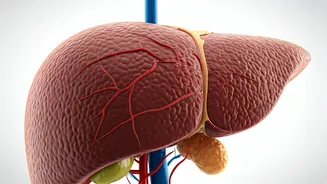What Are Deficiencies?
Nutrient deficiencies occur when the body doesn't get enough of essential vitamins, minerals, and other vital nutrients. These deficiencies can arise due
to various factors, including an unbalanced diet, digestive issues, or certain medical conditions. The consequences of these deficits can manifest in a wide range of health problems, from fatigue and weakened immunity to more severe conditions. It is important to comprehend the different categories of deficiencies and the particular roles that individual nutrients play in maintaining overall health. This section focuses on providing a fundamental understanding of what nutrient deficiencies are, their root causes, and their broad impacts on the human body. This awareness is the initial step toward fostering a more proactive and well-informed approach to health and dietary habits.
Vitamin Deficiencies
Vitamin deficiencies are widespread, and each vitamin plays a unique role in our bodies. For example, a deficiency in Vitamin D, often linked to limited sun exposure, can lead to weakened bones and increased risk of fractures. Symptoms can include bone pain, muscle weakness, and fatigue. Similarly, a lack of Vitamin B12, essential for nerve function and red blood cell production, can result in anemia, fatigue, and neurological problems. Vitamin C deficiencies, a common occurrence in those who do not eat enough fruits and vegetables, can lead to scurvy, characterized by bleeding gums and skin lesions. Recognizing the symptoms of these deficiencies is the first step toward seeking appropriate medical advice and dietary adjustments or, if necessary, supplementation.
Mineral Deficiencies
Mineral deficiencies are equally significant, with each mineral playing a vital role. Iron deficiency is one of the most widespread, often causing anemia, characterized by fatigue, weakness, and shortness of breath. This condition is particularly common among women and individuals with poor diets. Calcium deficiency can compromise bone health, leading to osteoporosis and increasing the risk of fractures. Symptoms include muscle cramps, numbness, and tingling in the extremities. Similarly, a lack of iodine can cause thyroid issues, and a deficiency in zinc may affect the immune system and wound healing. Addressing these mineral deficits typically involves incorporating mineral-rich foods, and in certain situations, doctors may recommend supplements to restore healthy levels.
Symptoms and Diagnosis
The symptoms of nutrient deficiencies can vary widely depending on the nutrient involved and the severity of the deficit. Common symptoms include fatigue, weakness, skin problems, hair loss, and changes in mood. Diagnosis typically involves a physical examination, a review of dietary habits, and blood tests to measure the levels of specific nutrients. For example, a doctor might order a complete blood count to check for anemia, or a Vitamin D test to assess bone health. Early detection is key, as mild deficiencies can often be corrected through dietary modifications and lifestyle changes. More severe deficiencies may require medical interventions, including supplementation under a doctor's guidance, to help restore balance and prevent long-term health complications. Awareness of these symptoms allows for timely medical interventions.
Preventative Measures
Prevention is always the best approach when it comes to nutrient deficiencies. The cornerstone of prevention is a balanced diet rich in various vitamins and minerals. Focusing on whole, unprocessed foods like fruits, vegetables, lean proteins, and whole grains ensures the intake of a wide range of essential nutrients. Regular physical activity also aids in nutrient absorption and overall health. Furthermore, being mindful of personal health factors is important. For example, individuals with specific medical conditions may need to pay closer attention to their diet or require supplementation under medical supervision. Regular health check-ups and open communication with healthcare providers can help in identifying potential deficiencies early on, allowing for timely intervention and preventative measures.
Dietary Strategies
Making informed dietary choices is critical to preventing and addressing nutrient deficiencies. Prioritizing a variety of nutrient-dense foods is crucial. For instance, including leafy green vegetables, such as spinach and kale, can boost iron and vitamins. Consuming citrus fruits and other vitamin C-rich foods supports immunity and iron absorption. Lean proteins, like fish and chicken, provide essential amino acids. Planning meals around these foods helps in ensuring a comprehensive intake of the necessary nutrients. Supplementation can also be a helpful tool if dietary changes alone aren't enough to correct deficiencies. However, it's best to consult with a healthcare professional before taking supplements, as excessive intake of certain nutrients can be harmful. Following a well-planned and varied diet will go a long way in supporting optimal health and preventing nutritional gaps.













